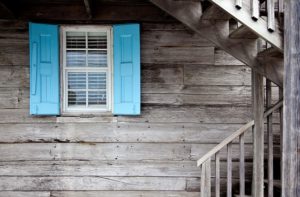
Back by popular demand, we answer a handful of your questions — and this time, we focus the full episode on real estate investing.
(If you listen until the very end, you’ll find a special treat.)
Here are some of the questions we tackle (written by Paula):
Q: Did you fall into your real estate niche by accident? Or did you chose it for specific reasons?
You can’t become an expert everything. You won’t be great at investing in mobile homes and strip malls and single family homes. You can’t bec an expert at flipping and wholesaling and buy-and-hold and tax liens.
Pick one niche and one strategy. Do one thing well, rather than 8 things poorly.
I chose rental properties because they’re a passive, cash-flow-centered investment. If you’re not interested in passive income, though, you could decide to run an active business wholesaling or flipping houses.
Q: Are there niches that look promising in the next 5-10 years or stay away from?
You can’t make wild, crazy predictions about what the market is going to look like in the future — just as stock market timers fail at predicting stock market returns.
Sure, you could look for indicators of development — such as the number of new building permits and remodeling permits being issued on a local level, job development, or infrastructure development. But rather than trying to base your decisions on speculation, base your decisions on cash flow.
Q: Are there types of real estate investment options that may pair up with certain investors better than others?
Think about how real estate fits with your lifestyle goals. Here’s an example.
As a wholesaler, you make an offer on a property. The seller accepts the offer and you enter a binding agreement (a legal status of being under contract). Before the sale date you flip the contract to another investor. You may earn a few thousand dollars by making the deal happen, but you need to continue wholesaling to keep making money.
As a buy-and-hold investor, by contrast, you collect passive rental income. You don’t get the thrill of a huge one-time payout, as you might from wholesaling or flipping. But you get ongoing, residual cash flow that continues for years.
If you’re an investor who wants to get into the real estate field for large, one-time payouts, flipping or wholesaling might make more sense. But if you’re after passive cash flow, rental properties might make more sense.
Q: Can you give us an example of some costly rookie mistakes you’ve made or see often?
One of my biggest mistakes happened during the depths of the recession. There were inexpensive properties everywhere, but I didn’t focus on buying those cheap houses. Instead, I spent a lot of time doing the work myself instead of building my business and acquiring more properties.
I thought I was saving money. In reality, though, I was wasting time.
Q: Any other mistakes that you hear about?
Many beginners say they want to “to live in the home, later rent it out, and hope the price will rise.” This is code for: “I don’t have a business strategy.”
Q: You mention finding realtors and investors to talk with. Do you have any suggestions on how to find them?
Google the name of your state and “Real Estate Investor’s Association” (or REIA) to find local groups. In larger cities you can find real estate groups on meetup.com.
Q: Would you recommend setting up a business before getting into real estate? Do you have a separate business set up for each property?
Most banks aren’t going to write a mortgage for a brand-new, single-member LLC. They want to issue the loan in your name.
You could purchase the property in your own name and then use a Quit Claim Deed to transfer ownership into a LLC. However, you risk the bank evoking the “Due on Sale” clause – meaning the entire balance of the mortgage is due at time the ownership changes.
Try this instead: Buy an umbrella insurance policy. These are incredibly cheap and can help pay for damages or legal representation. Also, use licensed, insured contractors and hire a licensed property manager.
Want to learn more about buying your first rental property? Sign up to our VIP list here. You’ll receive a free 7-day crash-course on real estate investing and announcements for the course.